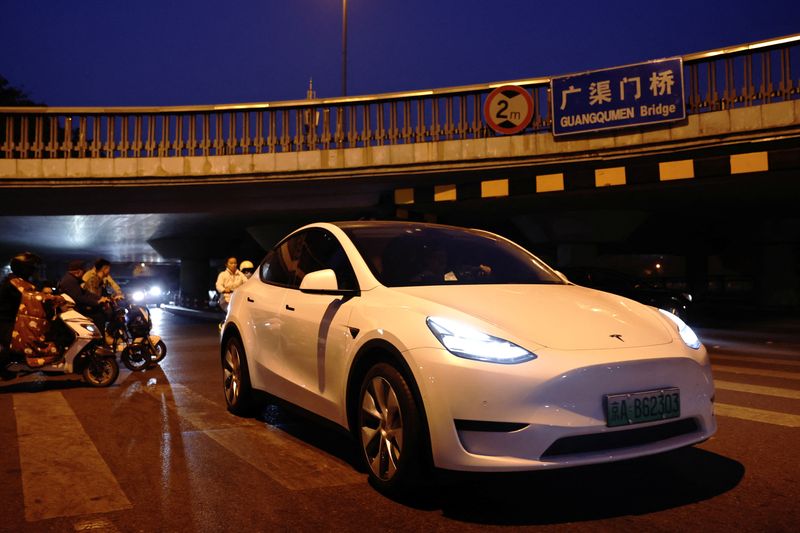BEIJING/SHANGHAI (Reuters) - Sales of U.S. automaker Tesla (NASDAQ:TSLA)'s China-made electric vehicles (EVs) skidded 17.8% in November from the same month a year earlier, to 82,432 cars, China Passenger Car Association (CPCA) data showed on Monday.
That marked the biggest fall since December 2022 when Tesla's sales of China-made EVs fell 21% on the year as the U.S. automaker reduced output and cut prices to deal with rising inventories and weakening demand.
Deliveries of China-made Model 3 and Model Y cars were however 14.3% higher than in October.
Chinese rival BYD (SZ:002594), with its Dynasty and Ocean series of EVs and petrol-electric hybrid models, saw passenger vehicle deliveries set another record at 301,378 vehicles in November, up 0.09% from October and 31% from a year earlier.
Tesla has been under pressure to fend off competition in the world's largest auto market, though CEO Elon Musk's charm offensive in China continues unabated.
Musk was among a small group of top U.S. executives who met with Chinese President Xi Jinping before a dinner event on the sidelines of the APEC summit in San Francisco in mid-November.
Xi expressed his support for Tesla's development in China, the automaker said in a Weibo (NASDAQ:WB) post. Musk, in response, said he appreciated the rapid development of China's new energy vehicle sector.
A Tesla-triggered price war in China since the start of the year has roped in more than 40 brands but its share of the country's EV market dropped to 5.78% in October from 8.7% in September, Reuters' calculations based on CPCA data show, as EV sales reached a monthly record.
Since late October, Tesla has made five upward price adjustments in China where EV demand growth is slowing as consumers favour more affordable plug-in hybrids even with an ever-increasing range of battery-only vehicles.

Li Auto (NASDAQ:LI) last month said mass production and delivery of its first full EV are scheduled for February.
Smartphone maker Xiaomi (OTC:XIACF) has also moved closer to EV production, with a unit of automaker BAIC Group applying for regulatory approval to build two Xiaomi-branded cars.